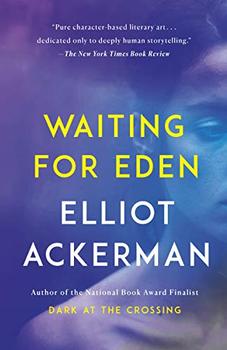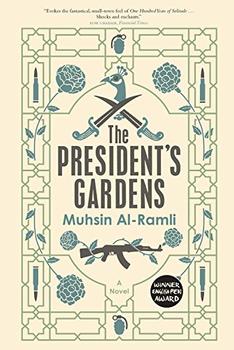Summary | Excerpt | Reading Guide | Reviews | Beyond the book | Read-Alikes | Genres & Themes | Author Bio

From "one of Iran's most important living fiction writers" (The Guardian) comes a fantastically imaginative story of love and war narrated by two angel scribes perched on the shoulders of a shell-shocked Iranian soldier who's searching for the mysterious woman haunting his dreams.
Before he enlisted as a soldier in the Iran–Iraq war and disappeared, Amir Yamini was a carefree playboy whose only concerns were seducing women and riling his religious family. Five years later, his mother and sister Reyhaneh find him in a mental hospital for shell-shocked soldiers, his left arm and most of his memory lost. Amir is haunted by the vision of a mysterious woman whose face he cannot see - the crescent moon on her forehead shines too brightly. He names her Moon Brow.
Back home in Tehran, the prodigal son is both hailed as a living martyr to the cause of Ayatollah Khomeini's Revolution and confined as a dangerous madman. His sense of humor, if not his sanity, intact, Amir cajoles Reyhaneh into helping him escape the garden walls to search for Moon Brow. Piecing together the puzzle of his past, Amir decides there's only one solution: he must return to the battlefield and find the remains of his severed arm - and discover its secret.
All the while, twin scribes - the angel of virtue and the angel of sin - sit on our hero's shoulders and narrate the story in enthrallingly distinctive prose. Wildly inventive and radically empathetic, steeped in Persian folklore and contemporary Middle East history, Moon Brow is the great Iranian novelist Shahriar Mandanipour's unforgettable epic of love, war, morality, faith, and family.
Filtered almost exclusively through Amir's muddled consciousness, Moon Brow is intimate in its inquiries and epic in its scope, ushering the reader through some of the most turbulent decades in Iranian history, and from locations as diverse as the polluted heat-haze of modern Tehran to the burning battlefields of the Iran-Iraq War, to the near-mystical calm and beauty of the Caspian Sea. Mandanipour reminds us that true humanity belongs not in the grey corridors of officialdom or on the faces of unsmiling ayatollahs and bureaucrats, but with the common dreamers and drifters whom they purport to represent. Perhaps, when utopian dreams fail—as they do, over and over, in Moon Brow—the only appropriate laughter, to borrow one of Nabokov's timeless phrases, is laughter in the dark...continued
Full Review
(843 words)
This review is available to non-members for a limited time. For full access,
become a member today.
(Reviewed by Jamie Samson).
The 1980-88 war between Iraq and Iran, which forms the backdrop to Moon Brow, is widely considered one of the bloodiest conflicts of the twentieth century. At least one million lives are estimated to have been lost, half of them civilians. The eight-year standoff is said to have cost its aggressors a combined one trillion dollars, an astonishing figure for what was a largely conventional war.
Territorial and tribal disputes have always marked the relationship between Iran and Iraq, but by the time war broke out in 1980, diplomatic relations had reached an alarmingly low point. Following the 1979 Iranian Revolution—which overthrew Tehran's despotic Shah and declared Iran an Islamic state, ruled by the Ayatollah Khomeini—Iraqi ...
This "beyond the book" feature is available to non-members for a limited time. Join today for full access.

If you liked Moon Brow, try these:

by Elliot Ackerman
Published 2019
From the National Book Award finalist, a breathtakingly spare and shattering new novel that traces the intersection of three star-crossed lives.

by Muhsin Al-Ramli
Published 2019
One Hundred Years of Solitude meets The Kite Runner in Saddam Hussein's Iraq.
Everywhere I go, I am asked if I think the university stifles writers...
Click Here to find out who said this, as well as discovering other famous literary quotes!